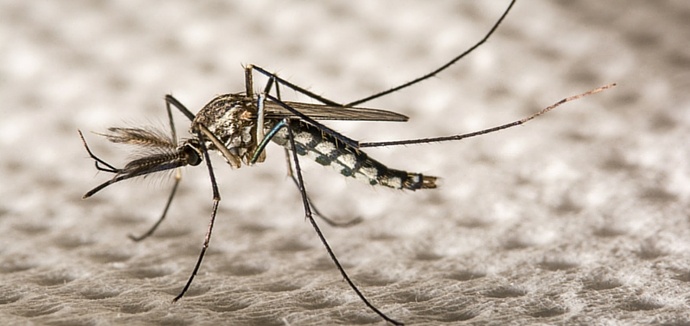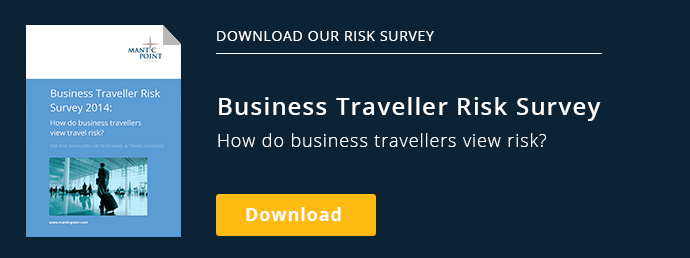Travel Risk Management: What You Need to Know about the Zika Virus
Posted by Mike Atherton on 29 March, 2016

The Zika virus has been creating great waves in the media, but for most of your travellers simple precautions will be enough to stay protected. Here's what you need to know.
Zika – What’s the Risk?
When undertaking a travel risk assessment for Zika-hit countries, it is worth bearing in mind that for around 80 per cent of people it is a symptomless disease. For the remaining 20%, symptoms tend to be relatively mild, presenting as rash, joint pain, fever and/or conjunctivitis.
The real danger of the virus occurs when pregnant women are infected, since it is now believed to cause microcephaly in infants, a congenital condition causing abnormal smallness of the head and associated with incomplete brain development.
Therefore, Public Health England (PHE) recommends that women avoid becoming pregnant in Zika-affected areas and for a further 28 days after they return from their trip. Should a woman develop symptoms that suggest she may have caught the virus, she should avoid pregnancy for an extra 28 days.
The disease can only be transmitted from human to human with sexual contact, so there is no danger of returning travellers passing infection to friends or colleagues. But the Centers for Disease Control (CDC) advises travellers with a pregnant partner to follow the same precautions as pregnant women.
As with any virus, businesses and travel risk managers need to consider not only those employees who are currently in affected areas, but also those who have returned previously. Information should be cascaded to all these employees, particularly those who travelled before the media attention hit and may not be aware of the symptoms to look out for.
The Travel Manager’s Task
The obvious privacy concerns and the fact that Zika poses unique threats to those women who are pregnant or might become so, mean that setting Zika guidelines is not necessarily an easy task.
In the New York Times, professor of medicine and epidemiology, David O. Freedman, highlights the legal restrictions and liabilities involved with employee health restrictions and the issue of whether businesses should “even hint at advising...female employees not to get pregnant [while traveling to or working in Latin America].”
The role for the travel manager then is to ensure their travellers are fully aware of the situation and the risks, and empower them to make their own decision as to whether they should make the trip, ensuring that provisions are made for those travellers who may wish to postpone or cancel.
If travellers are concerned, their GP can advise them further. The National Travel Health Network and Centre (NaTHNaC) worked with the PHE in issuing their travel advice, and, speaking to the Guardian, their director Dr. Dipti Patel, advises: “All travellers, especially pregnant women, going to an area where there is current active Zika virus transmission should ensure they seek travel health advice from their GP or a travel clinic well in advance of their trip and consult the NaTHNaC website for up-to-date information on where current active transmission is occurring and country information.”
Advice For Those Travellers Going to Zika Affected Areas
- Avoid areas where the Aedes aegypti mosquito is most prevalent.
- Wear long sleeves
- Tuck trousers into socks
- Apply Deet-based insect repellent, particularly where skin is exposed
- Keep windows closed
- Opt for accommodation with air conditioning and insect screens
- Hotels and other facilities may be taking precautions such as increased vigilance for mosquito breeding grounds or spraying.
Is Zika Affecting Business Travel?
Business Travel News reported that, as of February, Zika did not seemed to have affected the volume of business travel to the areas involved. Corporate travel agencies such as Hogg Robinson Group, BCD Travel, and Carlson Wagonlit all reported no decrease in bookings or increase of cancellation of trips.
So it seems that businesses and travellers are opting to take preventative measures during trips, rather than banning travel to affected destinations altogether.
There is also good news from the CDC, which announced last week that, in countries hit by the Zika virus, areas of high elevation are safe for tourists and travellers, even those who are pregnant. This includes Mexico City, Bogota in Colombia and Bolivia’s La Paz.
For further insight into how business travellers view risk, download our risk survey results.


